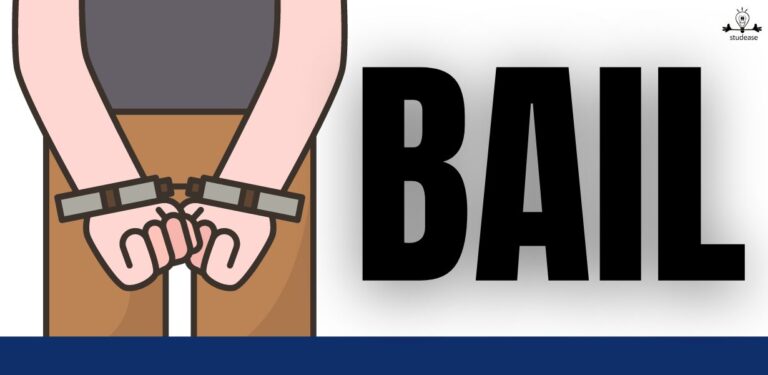110 UBS Bank Interview Questions: Navigating Global Financial Markets

UBS Bank is a major player in the global financial sector, offering a wide range of services. As a leader in wealth management, UBS Bank helps clients protect and grow their assets. With a history dating back to 1862, it operates in many countries around the world.
This post covers 110 Interview Questions for UBS investment / Bank Interview.

You might be interested to know that UBS Bank is not only about banking. It has a strong presence in investment banking and asset management as well. These services cater to individuals, businesses, and institutions alike.
What sets UBS apart is its commitment to providing tailored solutions for its clients. Whether you are a private customer looking to manage your personal wealth or a company seeking strategic advice, UBS strives to meet your needs.
Company Overview

UBS Financial, headquartered in New York, is a leading global financial services firm specializing in wealth management, investment banking, asset management, and advisory services.
UBS Financial has established itself as a trusted partner for high-net-worth individuals, corporations, and institutional investors.
With a strong presence in the United States and worldwide, UBS Financial offers cutting-edge financial solutions, combining Swiss banking expertise with deep market insights.
The firm is renowned for its personalized approach to wealth planning, risk management, and innovative investment strategies, making it a preferred choice for clients seeking long-term financial growth and stability.
UBS Financial’s New York office serves as a key hub for its global investment banking operations, playing a pivotal role in M&A advisory, capital markets, and corporate finance. Backed by top-tier financial analysts, wealth advisors, and investment strategists, UBS continues to drive sustainable financial success for its clients while maintaining a strong commitment to ethical banking, corporate responsibility, and technological innovation.
UBS Bank Services and Operations

UBS Bank offers a diverse range of financial services and operations, catering to individuals, businesses, and institutions. You’ll find they provide expert wealth management, a robust investment bank, and wide-ranging retail and commercial banking products.
Additionally, they offer various financial services tailored to meet client needs.
Wealth Management
UBS excels in wealth management, focusing on helping you achieve financial goals through tailored strategies. Their services include investment management, private banking, and asset management.
Investment Bank
Known for its global investment banking capabilities, UBS assists institutional clients like corporations and governments.
With significant market share in investment banking, UBS offers mergers and acquisitions advice, capital raising, and financial structuring. Their expertise ensures your business can navigate complex financial landscapes efficiently.
Retail and Commercial Banking
UBS’s retail banking offers a wide array of products, including savings accounts and credit cards. They focus on providing dependable and transparent banking experiences to you.
For commercial banking, UBS supports businesses with loans, cash management solutions, and trade finance services. They aim to foster growth and facilitate daily financial operations for companies of all sizes.
Financial Services
UBS Financial Services delivers solutions tailored to your financial goals. They offer retirement planning, life insurance products, and investment advice. Using a client-centric approach, these services help in securing a financially stable future.
List of 110 Interview Questions UBS Financial

When preparing for an interview with UBS Bank, it’s important to focus on different areas, such as Wealth Management, Investment Banking, and the bank’s presence through its Location Maps.
- Can you tell me about yourself?
- Sample Answer: “I have a background in finance with a degree from XYZ University. I have worked in both investment banking and wealth management, where I developed strong analytical skills and a client-focused approach. I’m passionate about helping clients achieve their financial goals and am excited about the opportunity to contribute to UBS Bank’s reputation for excellence.”
- What do you know about UBS Bank?
- Sample Answer: “UBS Bank is a leading global financial institution based in Switzerland, known for its wealth management services, investment banking, and asset management. It has a strong presence in major financial markets and is committed to providing tailored financial solutions to its clients.”
- Why do you want to work for UBS Bank?
- Sample Answer: “I admire UBS Bank’s commitment to innovation and client service. The firm’s focus on sustainable finance and its global reach align with my career goals. I want to be part of an organization that values integrity and excellence in financial services.”
- What are your strengths?
- Sample Answer: “One of my key strengths is my analytical ability, which allows me to assess complex financial situations and provide effective solutions. Additionally, I have strong interpersonal skills that enable me to build lasting relationships with clients.”
- What are your weaknesses?
- Sample Answer: “I tend to be a perfectionist, which sometimes leads me to spend more time on a project than necessary. However, I’m learning to balance quality with efficiency by setting more realistic deadlines for myself.”
- Describe a challenging situation you faced at work and how you handled it.
- Sample Answer: “In my previous role, we faced a sudden market downturn that affected many clients’ portfolios. I organized a series of meetings to communicate with clients, reassess their investment strategies, and provide reassurance. This proactive approach helped maintain client trust and satisfaction.”
- How do you prioritize your work?
- Sample Answer: “I use a combination of urgency and importance to prioritize my tasks. I make a daily to-do list and categorize tasks based on deadlines and their impact on client outcomes. This helps me stay organized and focused.”
- What is your experience with financial modeling?
- Sample Answer: “I have extensive experience in financial modeling, particularly in building discounted cash flow models and valuation analyses. I used these skills in my previous job to assess potential investment opportunities and inform client recommendations.”
- How do you handle stress and pressure?
- Sample Answer: “I handle stress by staying organized and maintaining a positive attitude. I find that taking short breaks to clear my mind and practicing mindfulness techniques help me stay focused and productive under pressure.”
- What do you think sets UBS Bank apart from its competitors?
- Sample Answer: “UBS Bank’s commitment to sustainability and innovation in wealth management sets it apart. The firm’s global reach combined with its personalized service allows it to cater effectively to diverse client needs.”
- Can you explain the importance of compliance in banking?
- Sample Answer: “Compliance is crucial in banking as it ensures that the institution operates within legal and regulatory frameworks. It protects the bank’s reputation and helps maintain client trust, which is essential for long-term success.”
- How do you stay updated on financial trends?
- Sample Answer: “I regularly read financial news from reputable sources, subscribe to industry journals, and participate in webinars and conferences. Networking with professionals in the field also helps me stay informed about emerging trends.”
- What is your understanding of wealth management?
- Sample Answer: “Wealth management involves providing personalized financial services to clients, including investment management, financial planning, and estate planning. It aims to grow and protect clients’ assets while addressing their unique financial goals.”
- Describe your experience with client relationship management.
- Sample Answer: “In my previous role, I managed a portfolio of high-net-worth clients, building strong relationships through regular communication and personalized service. I focused on understanding their goals and providing tailored solutions, which resulted in high client satisfaction and retention.”
- What tools or software are you proficient in?
- Sample Answer: “I am proficient in financial software such as X, Excel for financial modeling, and CRM systems like Y. I also have experience with data analysis tools that help in making informed investment decisions.”
- How do you approach teamwork?
- Sample Answer: “I believe in open communication and collaboration. I enjoy sharing ideas and learning from my colleagues. I also value feedback and strive to contribute positively to team dynamics to achieve common goals.”
- What is your experience with risk management?
- Sample Answer: “I have worked on several projects where I assessed financial risks and developed strategies to mitigate them. This included analyzing market trends, conducting stress tests, and implementing risk management frameworks.”
- Can you discuss a time when you had to persuade someone?
- Sample Answer: “In a previous role, I had to persuade a client to diversify their investment portfolio. I presented data and case studies showing the long-term benefits of diversification, which ultimately led to the client agreeing to adjust their strategy.”
- What motivates you in your work?
- Sample Answer: “I am motivated by the opportunity to make a positive impact on clients’ financial lives. Seeing clients achieve their goals and knowing I played a part in that success drives me to excel in my work.”
- How would you handle a difficult client?
- Sample Answer: “I would approach a difficult client with empathy and patience. I would listen to their concerns, validate their feelings, and work collaboratively to find a solution that meets their needs while aligning with our policies.”
- What do you consider to be your greatest professional achievement?
- Sample Answer: “My greatest professional achievement was leading a project that resulted in a X% increase in client retention rates. I implemented a new client feedback system that helped us address issues proactively.”
- How do you ensure accuracy in your work?
- Sample Answer: “I double-check my work and use checklists to ensure all aspects are covered. I also utilize software tools that assist in error-checking and maintain a thorough review process before finalizing any documents.”
- What is your experience with investment strategies?
- Sample Answer: “I have experience in developing and implementing various investment strategies, including value investing, growth investing, and asset allocation. I tailor these strategies based on clients’ risk tolerance and financial goals.”
- How do you approach financial planning for clients?
- Sample Answer: “I start by conducting a comprehensive assessment of the client’s financial situation, including their assets, liabilities, and goals. I then develop a personalized financial plan that addresses their needs and provides actionable steps to achieve their objectives.”
- What role does technology play in banking today?
- Sample Answer: “Technology plays a vital role in banking by enhancing efficiency, improving client experiences, and enabling data-driven decision-making. Digital platforms and fintech innovations are transforming how banks operate and interact with clients.”
- Can you describe a time when you made a mistake at work?
- Sample Answer: “I once miscalculated a client’s investment return due to a data entry error. I immediately informed my supervisor, corrected the mistake, and reached out to the client to clarify the situation. I learned the importance of thorough review processes from this experience.”
- What is your understanding of sustainable finance?
- Sample Answer: “Sustainable finance involves integrating environmental, social, and governance (ESG) factors into financial decision-making. It aims to promote investments that contribute to sustainable development while delivering financial returns.”
- How would you explain complex financial concepts to a client?
- Sample Answer: “I would break down the concepts into simpler terms and use analogies or visual aids to help illustrate the points. Ensuring the client understands the implications and benefits is key to effective communication.”
- What is your experience with portfolio management?
- Sample Answer: “I have managed diverse portfolios, focusing on asset allocation and performance analysis. I regularly review portfolio performance against benchmarks and make adjustments based on market conditions and client goals.”
- How do you handle tight deadlines?
- Sample Answer: “I prioritize tasks and focus on the most critical ones first. I also communicate with my team to delegate where possible and ensure we meet deadlines without compromising quality.”
- What do you think is the biggest challenge facing the banking industry today?
- Sample Answer: “One of the biggest challenges is adapting to rapid technological changes and the rise of fintech companies. Traditional banks must innovate to stay competitive while ensuring regulatory compliance and data security.”
- How do you build trust with clients?
- Sample Answer: “Building trust requires transparency, consistency, and reliability. I make it a priority to communicate openly with clients, provide honest assessments, and follow through on commitments.”
- What is your experience with regulatory compliance?
- Sample Answer: “I have worked closely with compliance teams to ensure that our practices align with regulatory requirements. I stay informed about changes in regulations and participate in training sessions to maintain compliance standards.”
- How do you assess a client’s risk tolerance?
- Sample Answer: “I assess a client’s risk tolerance through a combination of questionnaires, discussions about their investment goals, and analyzing their past investment behavior. This helps tailor a strategy that aligns with their comfort level.”
- What skills do you believe are essential for success in wealth management?
- Sample Answer: “Essential skills include strong analytical abilities, excellent communication, empathy, and a deep understanding of financial markets. A successful wealth manager must also be adaptable and client-focused.”
- How do you handle conflicts within a team?
- Sample Answer: “I believe in addressing conflicts directly and constructively. I would facilitate a discussion to understand each person’s perspective and work towards a resolution that aligns with our common goals.”
- What is your experience with financial reporting?
- Sample Answer: “I have prepared and analyzed financial reports, ensuring accuracy and compliance with accounting standards. I also present findings to stakeholders, highlighting key insights and recommendations.”
- How do you approach networking in the financial industry?
- Sample Answer: “I actively attend industry events and engage with professionals on platforms like LinkedIn. I believe in building genuine relationships and staying in touch with contacts to create potential opportunities.”
- What do you think is the future of banking?
- Sample Answer: “The future of banking will likely see increased digitization, a focus on personalized services, and greater integration of factors in investment decisions. Banks will need to innovate continuously to meet evolving client expectations.”
- Can you describe your experience with client onboarding?
- Sample Answer: “I have been involved in the client onboarding process, ensuring that all necessary documentation is collected and compliance checks are completed. I focus on providing a seamless experience to help clients feel valued from the start.”
- What is your understanding of the role of a financial advisor?
- Sample Answer: “A financial advisor helps clients make informed decisions about their finances, including investments, retirement planning, and tax strategies. The role involves understanding clients’ needs and providing tailored advice to achieve their goals.”
- How do you approach continuous learning in your career?
- Sample Answer: “I prioritize continuous learning by pursuing certifications, attending workshops, and reading industry-related materials. I believe staying informed about trends and developments is crucial for professional growth.”
- What do you think are the key factors to successful client retention?
- Sample Answer: “Key factors include providing exceptional service, maintaining open communication, regularly reviewing client portfolios, and being proactive in addressing client needs and concerns.”
- How do you evaluate investment opportunities?
- Sample Answer: “I evaluate investment opportunities by conducting thorough market research, analyzing financial statements, and assessing the potential risks and returns. I also consider macroeconomic factors that could impact performance.”
- What role does ethics play in banking?
- Sample Answer: “Ethics are fundamental in banking, as they build trust and credibility with clients. Upholding ethical standards ensures that we act in the best interests of our clients and adhere to regulatory requirements.”
- How do you manage client expectations?
- Sample Answer: “I manage client expectations by setting clear, realistic goals and maintaining open lines of communication. I ensure clients are informed about potential risks and market conditions that may affect their investments.”
- What strategies do you use for effective communication?
- Sample Answer: “I use active listening, clear language, and visual aids to enhance communication. I tailor my approach based on the audience, ensuring that complex information is presented in an understandable way.”
- How do you assess market trends?
- Sample Answer: “I assess market trends by analyzing economic indicators, studying industry reports, and monitoring news sources. I also engage with analysts and attend market briefings to gain insights into emerging trends.”
- What is your experience with cross-selling financial products?
- Sample Answer: “I have successfully cross-sold financial products by understanding clients’ needs and presenting relevant solutions that align with their goals. This approach has helped increase client satisfaction and drive revenue.”
- How do you ensure confidentiality in your work?
- Sample Answer: “I prioritize confidentiality by adhering to company policies and regulations regarding data protection. I ensure that sensitive information is only shared with authorized individuals and stored securely.”
- What is your approach to goal setting?
- How do you manage your time effectively?
- Can you describe a time when you had to adapt to change?
- What is your understanding of asset management?
- How do you handle constructive criticism?
- What are your long-term career goals?
- How would you define success in your role?
- Can you discuss a time when you exceeded client expectations?
- How do you approach problem-solving?
- What do you believe are the most important qualities for a successful banker?
- How do you handle competing priorities?
- What is your experience with financial analysis?
- Can you explain the significance of asset allocation?
- What strategies do you use to build rapport with clients?
- How do you approach mentorship and coaching?
- What do you think is the impact of globalization on banking?
- How do you ensure compliance with anti-money laundering (AML) regulations?
- What is your understanding of the role of technology in wealth management?
- How do you handle feedback from supervisors?
- What is your experience with market research?
- How do you approach client retention strategies?
- What is your understanding of the financial planning process?
- How do you stay motivated during repetitive tasks?
- What qualities do you think clients look for in a financial advisor?
- How do you manage your professional development?
- Can you describe a time when you had to make a difficult decision?
- What is your experience with financial regulations?
- How do you adapt your communication style to different clients?
- What is your understanding of risk-adjusted returns?
- How do you approach client education?
- What do you think is the most significant trend in the financial industry right now?
- How do you manage relationships with stakeholders?
- What is your experience with financial forecasting?
- How do you handle changes in market conditions?
- What strategies do you use for effective client communication?
- How do you assess the performance of investment portfolios?
- What role does customer feedback play in your work?
- How do you manage your workload during peak times?
- What do you believe is the key to successful negotiations?
- How do you ensure that your financial advice is unbiased?
- What is your experience with client segmentation?
- How do you approach goal setting with clients?
- What do you think are the most common mistakes made in financial planning?
- How do you handle confidential information?
- What is your experience with digital banking platforms?
- How do you assess the credibility of financial information?
- What is your understanding of fiduciary duty?
- How do you approach succession planning for clients?
- What do you think is the role of emotional intelligence in banking?
- How do you measure client satisfaction?
- What strategies do you use to develop your professional network?
- How do you ensure that your financial recommendations align with clients’ values?
- What role does social media play in modern banking?
- How do you stay organized in your work?
- What is your experience with alternative investments?
- How do you handle a situation where a client disagrees with your recommendation?
- What do you believe is the most important factor in achieving financial success?
- How do you approach diversity and inclusion in the workplace?
- What is your experience with financial technology (fintech) solutions?
- How do you envision your career progressing in the next five years?
Use the knowledge about UBS Bank and its sectors to tailor your responses according to the interview’s focus.
Frequently Asked Questions: UBS Financial

This guide provides answers to your most common questions about pursuing a career at UBS, their financial services, where they operate, account access, and what makes them unique in global private banking.
How can I start a career at UBS Bank?
To join UBS Bank, visit their careers page for job listings. You’ll find opportunities in various departments. Application processes typically include submitting a resume and completing assessments.
UBS values diverse backgrounds and encourages continuous learning.
What types of financial services does UBS offer to its clients?
UBS Bank offers wealth management, investment banking, asset management, and retail banking services. Wealth management includes financial planning and investment advice. Investment banking covers capital markets and advisory services.
Asset management focuses on institutional and individual investors.
In which countries does UBS Bank have a significant presence?
UBS Bank has a strong presence in Switzerland, the United States, and the United Kingdom. This global reach allows them to provide services to clients worldwide.
How can I access my UBS account?
You can access your UBS account online or via the UBS mobile app. These platforms offer convenient ways to manage your finances, check balances, and perform transactions. You’ll need your login details for secure access.
What distinguishes UBS Bank from other global private banking institutions?
UBS Bank is known for its personalized wealth management services tailored to high-net-worth clients. They have a strong focus on innovation and sustainability.
They also emphasize building long-term relationships with clients, backed by a tradition of Swiss banking excellence.
All the Best !






